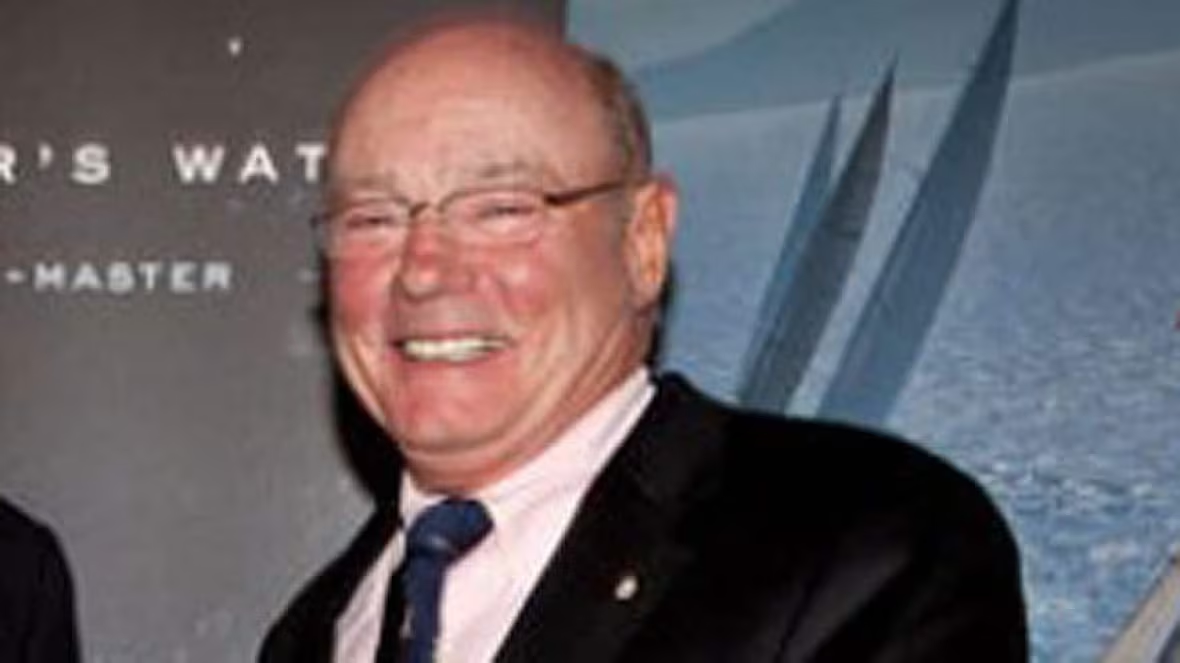Oland dry cleaning done day after father's body found, trial hears
Dry cleaning receipt and brown sports jacket among items seized from Dennis Oland's home

A dry cleaning receipt seized from Dennis Oland's home was dated July 8, 2011 — just hours after Saint John police told him he was considered a suspect in the bludgeoning death of his father, his second-degree murder trial heard on Thursday.
Saint John Police Force Sgt. Jay Henderson testified the receipt was for 19 items, including two sports jackets, a pair of pants and 16 shirts.
A brown sports jacket seized from Dennis Oland's closet during the July 14 search is a key piece of evidence in the Crown's case against him.
-
Live blog: Dennis Oland's second-degree murder trial: Oct 29
-
On mobile? Get live coverage here
Lead Crown prosecutor P.J. Veniot has said that the jacket had four areas of blood on it that matched his father's DNA profile.
The jury has not yet heard if the jacket in question was one of the two sports jackets listed on the VIP Dry Cleaners' receipt Henderson found on a chest of drawers in Dennis Oland's bedroom.

Richard Oland's body was found lying face down in a pool of blood in his office the following morning. The 69-year-old prominent businessman had suffered 45 sharp and blunt force injuries to his head, neck and hands.
Oland, who was the last known person to see his father alive, told police during a voluntary statement that he was wearing a navy blazer when he visited the Canterbury Street office, but video surveillance of him earlier that day shows he was wearing a brown jacket.
By the end of his 2½-hour statement, Oland went from being considered a witness to being deemed a suspect and informed that search warrants would be executed against him, the court has heard.

He was one of about 30 officers who participated in executing search warrants at Oland's home on Gondola Point Road, the court heard.
A city transit bus was used to transport the search team, confirmed retired constable Rick Russell, who was the lead investigator at the time.
Police spent most of the day carefully examining the estimated 20 rooms, basement and attic, as well as the out buildings in teams of two, said Russell.
He was not asked to detail what items were seized and subsequently became evidence in the court case.
Did not enter crime scene
Russell was on vacation the day Richard Oland's body was found, but was called at home around 11 a.m. and asked to come in. He attended Oland's office at 52 Canterbury St., around 1 p.m.
"I didn't go in," said Russell.
"I didn't want to contaminate" the bloody crime scene, he said.
"At that time, there's no value in me going in."

Then he headed back to the police station to start "prepping for the wave of information that was going to start coming in" and for first team briefing.
As lead investigator, his role was to handle the "speed, flow and direction" of the investigation, he said.
The 31-year veteran, who had previously led "six to eight" homicide investigations, said one of the first tasks was to interview family members and "get a family history."
"We didn't know a lot" about the case, he said. "It's important to start from Square 1."
Dennis Oland was among the family members who voluntarily agreed to give police a statement. At that point, he was just considered a witness — someone who might have information that could assist with the investigation.
The interviews were "dragging on," so Russell told Dennis and his wife they could leave for a while, grab a coffee, and come back, the courtroom heard.
Oland was interviewed around 6 p.m. by Const. Stephen Davidson, a 12-year veteran, who was new to the major crime unit. Davidson ended up taking over the file three months later, when Russell retired.
'Extensive' search efforts
Russell played a key role in the search of Dennis Oland's home.
He served the warrant on Oland and his wife, he said. They were given the option to stay, but chose to leave.
Russell was in charge of the search inside of the house while another officer was in charge of the property search, he said.
Defence lawyer Alan Gold noted police spent only one day searching, although the search warrant was valid for four days.
"You were satisfied every conceivable effort had been made to locate evidence [in] the house and on the property?" asked Gold.
"Correct," replied Russell.
Search warrants were also obtained for Dennis Oland's car, cellphone, home computers, work computers, a camp log book, Richard Oland's cellphone records, and a sail boat called Loki, at the Royal Kennebecasis Yacht Club, the court heard.
Gold stressed the "extensive efforts" by police.
"The bottom line is ... you did everything you could" to find evidence related to who might have killed Richard Oland? he asked. Russell agreed.
Dry cleaning receipt - court exhibit (PDF KB)
Dry cleaning receipt - court exhibit (Text KB)CBC is not responsible for 3rd party content